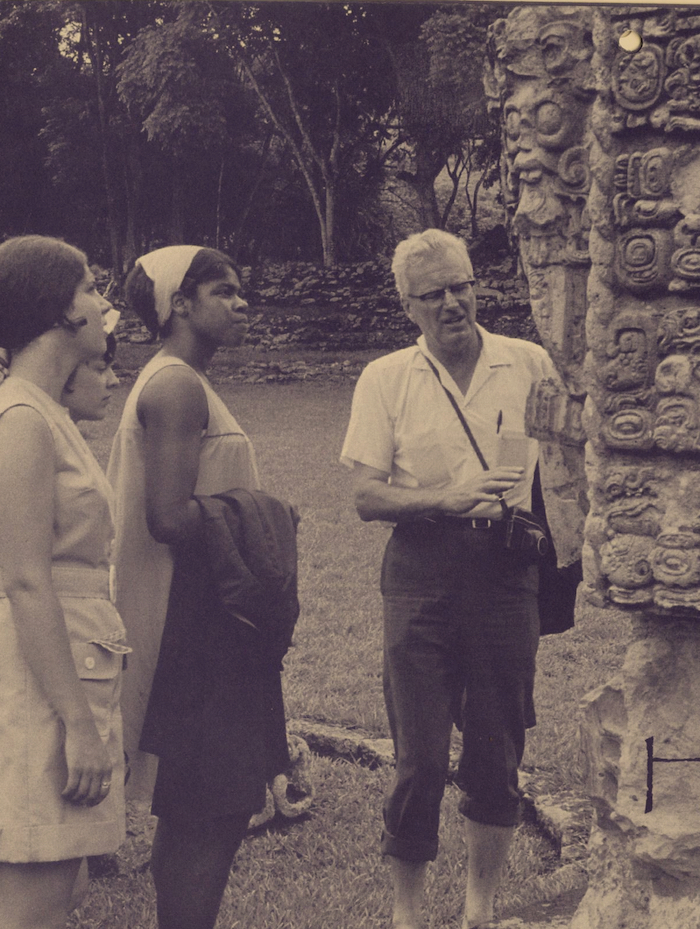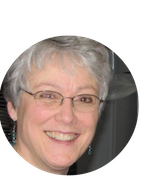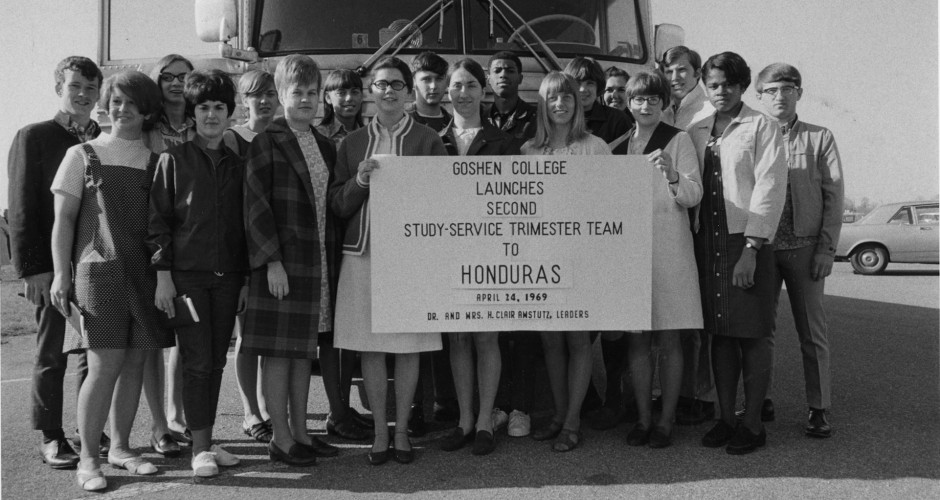In the winter and spring trimesters of 1968-69, H. Clair and Florence Amstutz established the first SST unit in Honduras. There were no precedents for how to run the program. The college and on-site faculty had to learn as they went along, adjusting policy and practice as experience grew. This was before the computer age, and communication both with college students on assignment and with the campus back home was dependent on mail service and personal transportation. Ready answers were never at hand. Telephone calls were not in the budget.
As the college’s physician, H. Clair had established a student clinic on campus and taught pre-med classes in the biology department. His wife Florence was a trained nurse who taught in the special education department of the Goshen community schools. The following are excerpts from letters written from Tegucigalpa during the first term to their family of grown children, all Goshen College alumni: Barbara (Paul) Hodel, Vivian (Verle) Headings, John (Lois) Amstutz and Carolyn (Kip) Patterson. I am the youngest child, along with my twin sister Mabel Blunk.
At the time these letters were written, the family members were scattered from Puerto Rico to the midwest. Mabel was in her junior year at Goshen College and I was in Marburg, Germany under the Brethren Colleges Abroad Program. Mabel had been on the first French-speaking unit to Guadelupe (under Professor Art Smucker) and later spent her off-term of medical school in Haiti. Although the four older children had no SST options, all six children ended up living and working in third world countries at one time or another: Denmark, Congo, Honduras, Nepal, Indonesia, Netherlands. H. Clair and Florence spent a year working in an Ethiopian hospital after retirement. The whole family loves to travel.
The need for confidentiality has passed, and if noting the hard work of the early days helps honor the efforts of college administration and faculty to get this invaluable program up and running, it is worth the time to share the story.
ο
First impressions: H. Clair
December 24, 1968
The house is not what I expected. It is close in but in a run-down area. The doors are loose on the hinges [and] scrape the floor. The windows want to fall off if opened. There are a lot of knickknacks around which are dust catchers. But—are there lights to read by or a book shelf? [No.] The owner is in California but you’d never guess it by the broken-down place. Besides, the typewriter was damaged en route and I’ll have to have it repaired. The voltage here is 220 and that isn’t good for it. I finally found a transformer [i.e. converter].
Being Christmas Eve, the air is full of fire crackers the likes of which I never heard in my life, including the old unrestricted 4th of July’s. We are staying in because of the rain and because we are trying to make the best out of the house, which won’t be easy. We are well, in good spirits. There will be loads to do.
On introducing the cultural/social environment to students: H. Clair
January 19, 1969
The educational program is going forward quite nicely. We had various government officials speak. Our usual program is for Spanish study from 9-12 in the morning and a lecture 2-3 [p.m.] with discussion 3-4 [p.m.]. The past week a lawyer and university professor spoke on the social structure, the chief of educational planning on the educational system, the director of the university on the university, and two medical specialists on medical education and medicine. All these [people] have studied in the States and speak English. The students do get frustrated from hearing the same refrain over and over.
In spite of compulsory education, half the people are illiterate, which by definition they have not been to school and cannot write their names. Transportation is poor, there being no roads. The people are poor and ill fed, everyone is independent of everyone else. The students ask intelligent and pointed questions. But a bit of lethargy and indifference is setting in as the enormity of the problem is soaking in. The fresh hope of doing something, of getting enthusiastic response is fading.
It is too early to tell what the final reaction of the students will be. When they get into their service projects they may perk up again–provided they can be given challenging opportunities. But at this stage I cannot promise they will get them. Finding such positions is difficult.
January 28, 1969
The week has been an interesting one. Besides the usual language and lectures, we had some field trips. On Wednesday the group went to the general hospital in the forenoon. This hospital is built to contain a thousand beds, but has more than 2 thousand patients. The ped[iatric]s section regularly has 2 per bed, 80% with malnutrition, most of them from the country. The dean of the med school was at the hospital but hardly wanted to talk to me. He said we should have gone to the new Maternal-Infant hospital instead.
That afternoon, I stopped there to check. It is a beautiful building fully staffed, but has never had patients. I talked to a school teacher who informed me of a friend of hers who is a trained nutritionist who has been on the paid staff for the past two years but has not been given an assignment because there are not patients. It is not that the authorities are not doing anything. Two other hospitals in the city are in building at this time.
In the afternoon we went to the university. It is being built, too. The physics department was equipped with electronic gear, including oscilloscopes and apparatus to determine the mass of an electron. It was explained, however, that they are not being used as yet, since they are teaching only elementary physics, since the students do not have the math background for sophisticated electronics. The equipment for mechanics and optics has not yet arrived…
Student assignments and responses: H. Clair
February 16, 1969
[The letter describes a week’s bus trip into the interior and Caribbean coast that included the Mayan ruins of Copan, rubber, palm and banana plantations, a cattle ranch, a mission hospital and school and more, then continues:]
Obviously busy today catching up. The students go on service assignments tomorrow. We left 2 fellows at San Pedro where they will assist a mission, 3 girls at the convent in Comayagua. By the way, what would you do to a college fellow who peeps in a convent window, then opens the door to a nun’s room? “It’s alright” he said. “Before opening the door I made sure there was no one in the room by checking at the window.” (And for this we give degrees?)
The next few weeks will see a change of emphasis. Students will be on assignment. I will need to make visits, give academic counseling with choice of majors to sophomores, language tests, arrange for homes and lectures for the new students to come in April, etc. I expect the second term will be somewhat easier than this even though there will be a bigger number (22).

[Florence adds to this letter]: I have begun already to think of ways of improving group management techniques for supplying food and water adequately to the group of touring students, how to get information to all, somehow letting them know that following the guide closely will insure ‘getting more out of’ it’. Or do they already know, or don’t know how little of the total they do know, or don’t they care? How can their motivation be sharpened, etc.?
We can see that our students have had less fortunate up-bringing than members of our own family, or are we simply observing that there is already a new breed of students from Goshen, less mature, and so steeped in superficialities by contemporary mass communications that they are unable to see the trees for the forest? But they are charming, rebellious, naïve, soaking up as much as they are capable of, shedding academic pressures at will, wondering if they will get a grade… [But] at least two-thirds of the group are conscientious. A few problems can raise considerable dust.
February [19?],1969
Just now we are having a bit of a breathing spell, since the big rush of the educational period is over and the service period has just begun. Not that there are no problems. I so much wish we had students here who are study-service minded. Half the fellows and nearly half the group is on academic probation. Indeed two fellows plan not to return to the college at all and are really lame ducks. I think it is a mistake to send folks here who are not basically in sympathy with the program. It makes an impossible situation for us…
Yesterday I went to see the three boys at the orphanage. They have been back from the trip since Saturday evening. Their first assignment was to paint, and they had had painting experience. It was now 2:45 Wednesday p.m. and I found them in bed. They had bought the paint but had not yet opened the pails. On the other hand, they asked me for money for getting meals at a restaurant although they were getting board and room, the same meals as the Peace Corps worker who directs them. The orphan boys’ rooms were clean and the beds made. Our fellows’ room was not swept, in grand disorder with the floor littered.
Florence
March 4, 1969
I wish Dad [H. Clair] would take things with a little less adrenalin sometimes. Some of the students do have a long way to go, but they are a product of their environment, embarrassing as that can be sometimes…
Yes, the [week in February grand tour] trip was not a pleasure trip, and for the students there was to be no retracing of the area, so every kilometer had to count, as well as having to stretch the experience so we would have them get the most possible out of the budget. The main reaction was the appreciation of it having been an inestimably worthwhile trip, well organized, and everyone coming through with a good experience.
The service terms appear to be doing something for them. One girl expressed it with this quote: “Our horizons are literally exploding.”
But anyway, they say there is a great difference in groups of students. Our next one appears to be a slightly older, more experienced group. But let me assure you that over half of this group are fine personalities.
I relish each new day for the adventures it brings…
The second unit begins: Florence
April 29, 1969
The new group of students are enthusiastic and adventuresome. Also we have more homes than we could supply with students. It seems the beginning is off to a smoother start. The students have already organized and Father [H. Clair] has an assistant. So altogether we are happy, including the hosts and students.
Apparently the second unit went much better. When they returned, our parents talked almost exclusively about the value of cross cultural learning they witnessed as SST leaders during this time.
Photo credit: Goshen College (top) and Mary Gilbert (middle)
 Mary Gilbert is the youngest daughter of Dr. H. Clair and Florence Amstutz. She retired from a library career that included working in the Mennonite Historical Library at Goshen College from 1979-88. She lives in Goshen with her husband Glenn Gilbert, who works at GC. She has coordinated several 1970 class reunions and retains an interest in campus issues and events.
Mary Gilbert is the youngest daughter of Dr. H. Clair and Florence Amstutz. She retired from a library career that included working in the Mennonite Historical Library at Goshen College from 1979-88. She lives in Goshen with her husband Glenn Gilbert, who works at GC. She has coordinated several 1970 class reunions and retains an interest in campus issues and events.




